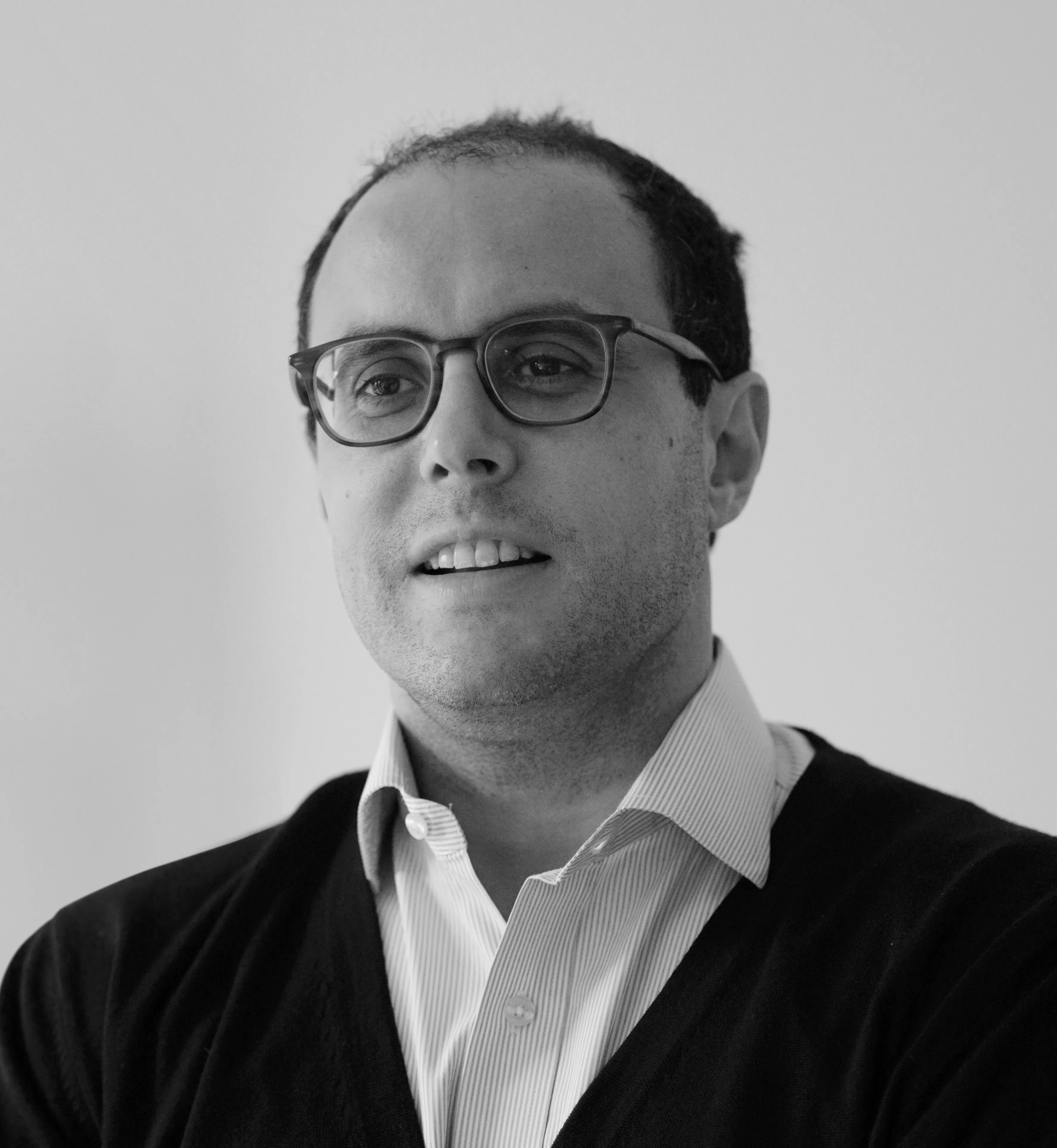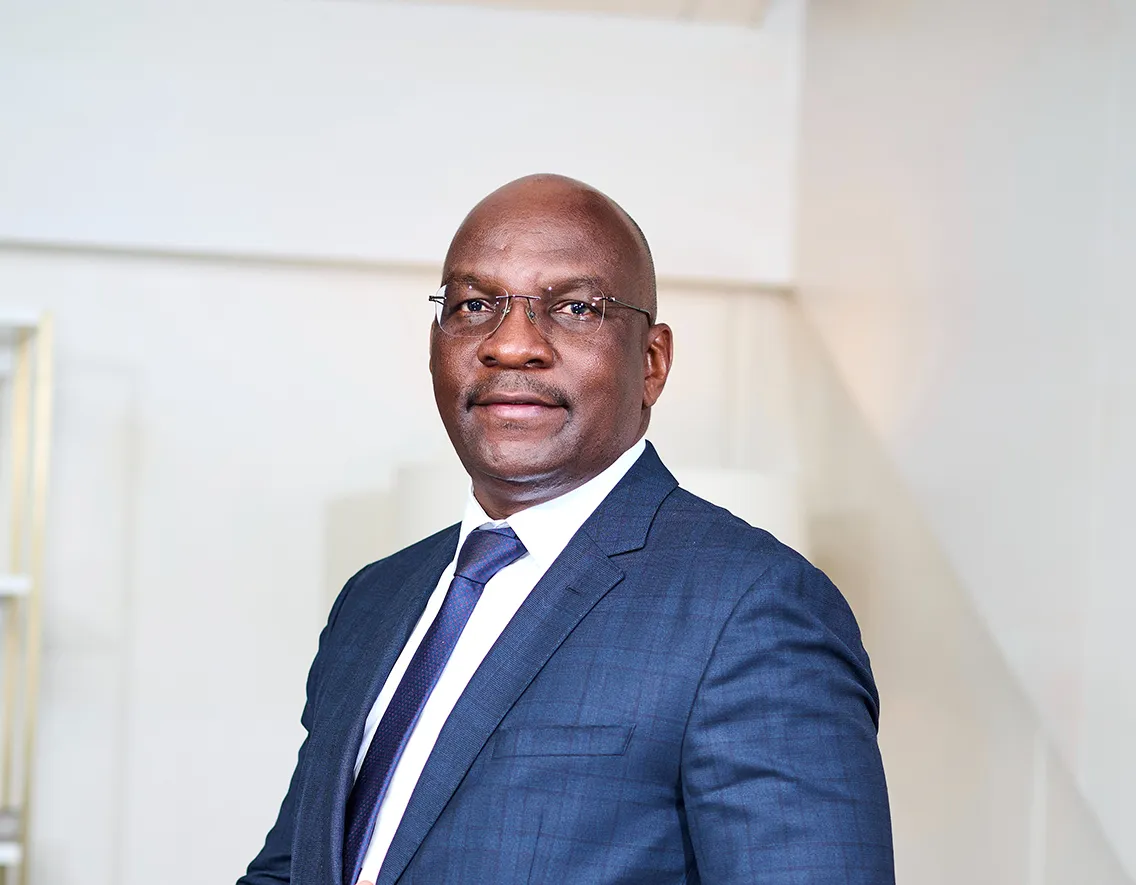
At this year’s World Economic Forum so much focus was trained on the new administration in Washington DC and the uncertainty that it presages for the global order that Africa and issues important to the continent felt largely sidelined. But Denys Denya, senior executive vice president at the African Export-Import Bank (Afreximbank), believes that it was important to be there nonetheless.
“We are a partnership organisation so we are looking for partners who can enable us to achieve our objectives. We are talking to participants from all over the world,” he told African Business in Davos.
Denya says the bank’s delegation has had some success. “We had a meeting with the Swiss authorities to explore how they can support us, particularly in the health sector, as we are championing healthcare across the continent. We want to help Africa produce more medicines and vaccines locally and with Switzerland’s strong expertise in this area we believe that we can achieve this,” he explains.
Davos is also an important place to take the global temperature and have frank conversations with the movers and shakers. “We are here to make connections,” he adds.
Going to China
Those connections will become even more useful for Afreximbank as it seeks to diversify its sources of funding, something the bank is focused on as it seeks to build out its war chest to prosecute its ambitious agenda for Africa. Days before we met, the bank’s plans for diversifying its funding sources received a significant boost when the China Chengxin International Credit Rating Company assigned it an “AAA/Stable” rating – the first African multilateral financial institution to be so rated – on the back of its strategic positioning; risk management framework; business generation; profitability; and liquidity management.
Denya says this rating will enable the bank to tap the capital markets in the world’s second-largest economy, a move it is keen to pursue.
“We have investors in the USA, Europe and Japan. Now we are looking at China for capital markets access. Currently, we have bilateral facilities out of the mainland of China.” (One of the Bank’s shareholders is the Export-Import Bank of China.)
The favourable rating is thus a welcome boost to a programme that Denys says is already underway.
“We are actually in the process of registering a programme under which we can go to market at any time and issue bonds of any tenor. We’ve already secured approval from the [Chinese] Central Bank and appointed advisors in the market,” he reveals.
Exploring this option means that the bank can diversify its sources of funding and the risks attached to it, a prudent move in the current climate. “We don’t want to be beholden to only one type of investor or counterparty. So we are diversifying,” he explains. It is also about the cost of capital itself.
“When you look at the economics, currently, it is cheaper for us to raise money in China.”
And with trade between Africa and China growing exponentially, raising funds in Chinese Yuan will be important for the bank and its clients around the continent. “Part of that [funds raised in China] we will convert [to Yuan] because currently 85% of our balance sheet is in US dollars. But the future is about positioning ourselves to participate in the evolving dynamics of China-Africa trade,” he explains.
Capital the constraint on growth
The foray into China follows a successful samurai (Japanese yen) bond issue last year. The bank needs all the capital it can get, Denya says, because capital is necessary for its growth and expansion plans. While it has grown its balance sheet rapidly over the past five years from under $10bn to over $30bn today, Denya insists the bank can grow even faster with more capital.
Currently, Afreximbank generates over $700m in profits annually, but it needs to grow its capital base through more than just retained earnings. And while its shareholders have responded well to its capital calls – $2.1bn has been raised out of a request for $2.6bn made in 2021 – the bank recognises that its shareholders – mainly African countries – have pressing fiscal pressures and can only do so much.
That means considering alternatives, such as panda and samurai bonds, as well as listing depository receipts on the Mauritian stock exchange, as the bank did back in 2017. “Our ability to raise capital is the limit to our growth. So 30% [growth in our balance sheet] is good but we can grow much faster, maybe even 100%. There’s a gap of $80bn in trade finance alone,” he points out.
Innovation and agility called for
With so much needed and so little available, African development finance institutions are called on to be innovative and agile. Denya agrees that DFIs must reform to meet a moment in which they have been shown to be a crucial shield for vulnerable countries.
“If you look at the economic shocks that we have had recently – the end of the commodity super-cycle, Covid-19, the Ukraine crisis – you find that the continent actually needs DFIs because they can come up with unconventional ways of making things happen.”
One initiative that the bank is solidly behind is the African Continental Free Trade Area (AfCFTA), which seeks to bring all African countries together into a single market. Denya says while it’s proceeding faster than other similar agreements, the pace still feels insufficient: “We are impatient, and rightly so.”
While 48 countries have ratified the agreement and key protocols are in place, there are persistent hurdles. From inadequate road and rail infrastructure to cumbersome border processes, moving goods and people across borders remains a challenge.
“Obviously there are still some issues around policy. I still need a visa to visit most of the African countries. We still don’t have free movement of people, which will help in increasing African trade. It needs to happen,” he stresses.
Denya reiterates the bank’s support for the agreement, demonstrated through a number of initiatives. One is the Pan-African Payments and Settlement System (PAPSS), which aims to bypass reliance on third-party currencies that complicate trade. Afreximbank also organises the biennial Intra-Africa Trade Fair (IATF), which helps showcase regional trade opportunities, with the third edition set for Algeria this year. Yet more work is required, particularly in harmonising standards across countries to facilitate trade.
“Egypt, for example, exports more to Europe than the rest of Africa because of aligned standards,” Denya notes.
Trade as a firewall against protectionism
Increased intra-African trade will be one of the firewalls the continent will come to rely on in an era of protectionism and isolationism, which, this year, hung over Davos.
“The US is raising tariffs, and countries are likely to retaliate. That can never be good for global trade,” he notes. Against this backdrop, Africa’s drive for regional trade becomes even more critical, with the potential to uplift living standards through localised and diversified economic activity. However, high interest rates, a strong dollar and Africa’s enduring risk premium complicate access to affordable resources, forcing the continent to seek alternative funding.
“Afreximbank is prepared. We’re diversifying sources and tapping into growing Middle East-Africa trade to reduce reliance on the dollar or euro,” he explains.
Another line of defence could be the African diaspora, and Denya says he is using the annual retreat to court that audience.
“One of the objectives we are pursuing here is the Global Africa agenda – connecting with Africans wherever they are,” he says, pointing to the panels where Benedict Oramah, the bank’s president and chairman, connected with entrepreneurs of African descent.
“Global Africa is about enabling Africans from across the globe to work closely together. We haven’t really been very successful pursuing individual agendas. But if we work together, I think we can do more,” he says.
Want to continue reading? Subscribe today.
You've read all your free articles for this month! Subscribe now to enjoy full access to our content.
Digital Monthly
£8.00 / month
Receive full unlimited access to our articles, opinions, podcasts and more.
Digital Yearly
£70.00 / year
Our best value offer - save £26 and gain access to all of our digital content for an entire year!

 Sign in with Google
Sign in with Google 



